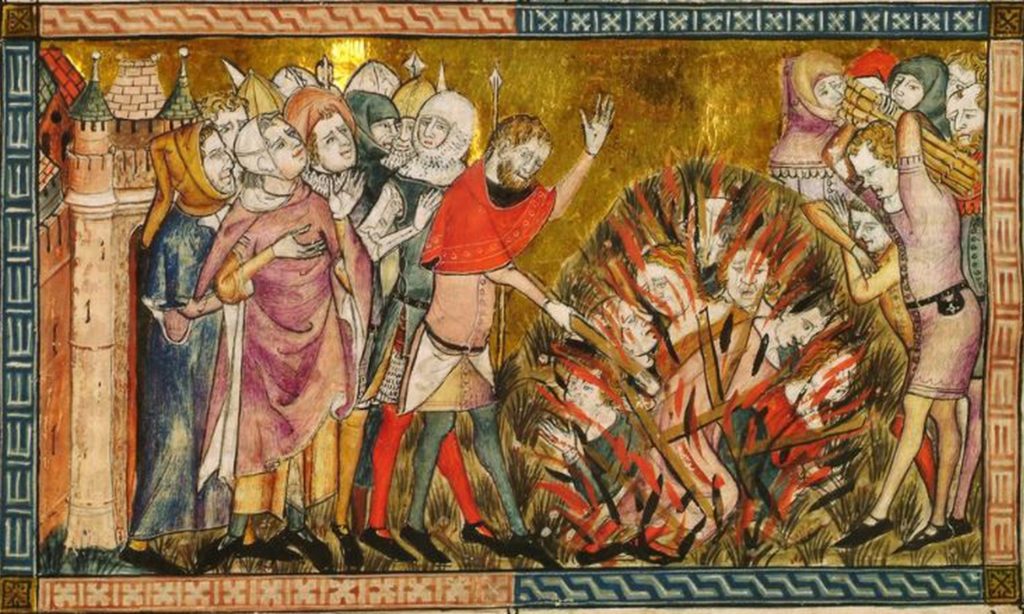Australia/Israel Review
The Last Word: Ex Cathedra
Oct 29, 2020 | Jeremy Jones

Some years ago, well before interfaith dialogue was commonplace, a group of senior Jewish and Christian leaders met in Sydney.
There had been a number of reports of preaching which featured antisemitic stereotypes and the circulation of material in churches which could inflame not just contempt but hatred.
Out of goodwill, the churchmen (they were all male) suggested that it would be worthwhile discussing how we could work together to break down stereotypes and sow the seeds for cooperation on a wider agenda.
We did not come together to agree on theology, to endorse social policy platforms or seek to alter political opinions, but to address an evil we all saw as a problem which needed to be confronted.
All was going well until one of the Jewish participants noted that in some of the anti-Israel propaganda circulating at the time was a claim that, just as Jews poisoned the wells of Christians in the Middle Ages and spread the Black Death, Jews were today poisoning the water sources of Arabs.
One of the church leaders, who was a figure of some national prominence, said that this was not antisemitism as it was plausible and, when pressed, argued that it was well-known Jews had poisoned Christians throughout history.
His colleagues then temporarily adjourned the meeting, before returning and letting us know their now-unanimous view that this was, indeed, an antisemitic slur.
Fast forward to another meeting between Jewish and Christian leaders a decade later, where the subject of discussion was a document one Australian church had circulated which contained demonstrable untruths and thinly-veiled antisemitic caricatures when talking about Israelis.
In the context of a constructive attempt to find ways to not just set things right in terms of the false information, but to also develop a relationship which would limit the prospects of this recurring, the author of the document explained his actions in a way which the Jewish (and some Christian) participants found shocking, even morally repugnant.
The document’s compiler said that he was acting in the appropriate manner for a person who adopted the “solidarity model” of advocacy. In this template, he explained, you identify the oppressed and the oppressor. You then do everything you can to support the oppressed against the oppressor.
“Even lie?”, I asked. Yes, you can say anything to support the oppressed, including play fast and loose with the truth, he informed us. The looks on the faces in the room told me that the majority had no idea they had a colleague who thought truth was expendable in a church publication.
I should mention that the people central to the above incidents were both among those who would be regarded as progressive. Meanwhile, many analyses of the problem of antisemitism in churches have observed the acceptance of antisemitic conspiracy theories and the regurgitation of anti-Jewish tropes is a rapidly growing problem in the most extreme right-wing groups on the Christian spectrum.
A common theme running through much of the antisemitism of the progressive and reactionary Christians is the idea that some incredibly powerful force, labelled “International Zionism,” but with no relationship to Zionism as it is rationally understood, is an existential enemy of all which is good.
The idea that Judaism was superseded when Christianity emerged – often with the associated concept that Jews are theologically destined to forever wander the world and suffer a variety of indignities as a result of rejecting “the Truth” – is a staple for a spectrum of antisemitic Christians.
Within the very broad church which is contemporary Christianity, the battles between those who have neutral or positive views of Jews and those who see Jews as enemies are being fought on many levels, in many different ways.
These issues will be contested within the churches, among those with the same broad beliefs and philosophical and cultural understandings.
The outcomes will reveal much about the integrity and moral foundations of those who identify as Christians.
Tags: Antisemitism, Interfaith Dialogue






